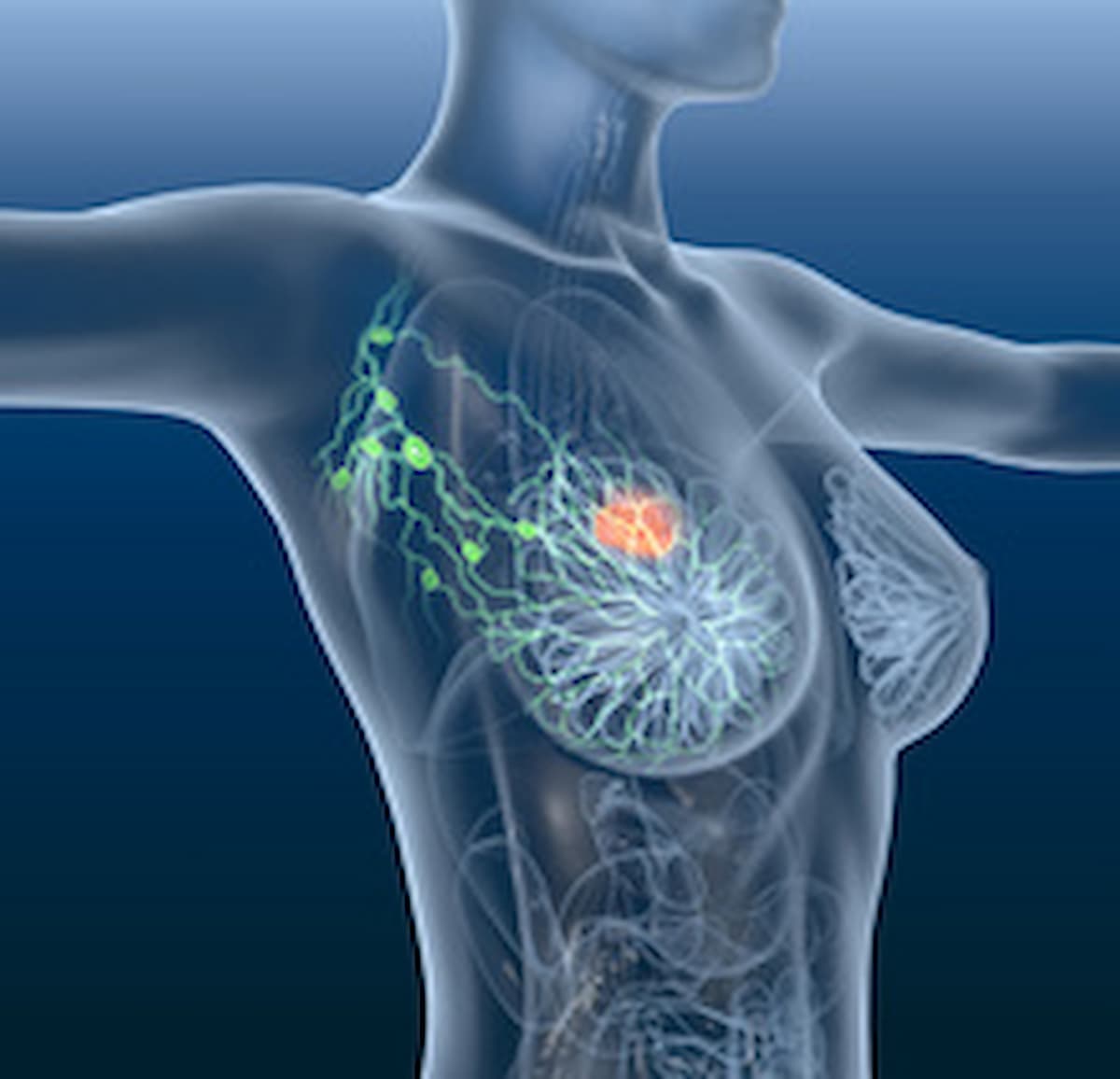The chief interest at Monday’s largely pointless Gaza summit in Sharm el-Sheikh lay in whether Donald Trump insulted or feted his fellow global leaders as they approached the self-styled world’s greatest peacemaker to shake hands and pose for…
Blog
-

Yorkshire men with prostate cancer call for screening programme
 Grant Aldred
Grant AldredGrant Aldred said he was not aware that his parents’ cancers meant he was at higher risk A prostate cancer patient has said that he would likely survive the disease had a screening programme been available when he was younger.
Grant…
Continue Reading
-
This Date in UCSF History: Medical Breakthroughs Earn Nobel
Originally published in Synapse on October 12, 2000.
Three winners of the Nobel Prize in medicine were announced in Stockholm, Sweden on Oct. 9. Prize winners Arvid Carlsson, Paul Greengard, and Eric Kandel were honored for their research and…
Continue Reading
-
South Africa's health minister hails new HIV prevention jab but warns of limited supply – The Washington Post
- South Africa’s health minister hails new HIV prevention jab but warns of limited supply The Washington Post
- The only thing standing between humanity and the end of HIV vox.com
- South Africa-HIV prevention chronicleonline.com
- BHEKISISA | Anti-HIV…
Continue Reading
-

‘Almost 30m plays on Spotify!’ When fake bands hit the real-life big time, from Spinal Tap to the Flaming Dildos | Music
They have sold out venues on both sides of the Atlantic. Their first-ever gig was opening for a former member of Arcade Fire. Their 2024 album has been acclaimed as sounding like a lost classic of 1970s rock. Their two top tracks, Bright and…
Continue Reading
-

4 coronal mass ejections are racing toward Earth and could spark impressive northern lights this week
A train of solar storms is barreling toward Earth, with four coronal mass ejections (CMEs) expected to hit over the next few days. Any potential impact could trigger impressive auroras in northern skies and possibly even at…
Continue Reading
-

Scientists Solve Mystery of Human Chromosome Fusions
Scientists have finally uncovered the exact DNA sequence where human chromosomes fuse to form Robertsonian chromosomes, a mystery that has puzzled researchers for over a century.
Using advanced genome sequencing at the Stowers…
Continue Reading
-
Just a moment…
Just a moment… This request seems a bit unusual, so we need to confirm that you’re human. Please press and hold the button until it turns completely green. Thank you for your cooperation!
Continue Reading
-
Karen Russell '06 Named Finalist for National Book Award – Columbia School of the Arts
- Karen Russell ’06 Named Finalist for National Book Award Columbia School of the Arts
- 2025 National Book Awards Finalists Announced nationalbook.org
- Omar El Akkad’s book, One Day, Everyone Will Have Always Been Against This, finalist in National…
Continue Reading
-

Tucatinib Regimen Improves PFS in HER2+ Metastatic Breast Cancer
The addition of tucatinib (Tukysa) to maintenance therapy with trastuzumab (Herceptin) and pertuzumab (Perjeta) displayed a statistically significant improvement in progression-free survival (PFS) vs placebo as a first-line treatment for patients with HER2-positive metastatic breast cancer, according to a news release from the drug’s developer, Pfizer Inc.1
The investigational agent was assessed in combination with trastuzumab and pertuzumab across the aforementioned patient population in the
phase 3 HER2CLIMB-05 trial (NCT05132582) . The trial met its primary end point of PFS per investigator assessment, and the tucatinib-based regimen was well-tolerated, with the safety profile consistent with the established profiles of each individual agent.“[HER2-positive] breast cancer is a particularly challenging subtype, with many patients experiencing disease progression despite effective treatments in the first-line setting,” Erika Hamilton, MD, principal investigator of HER2CLIMB-05 and director of Breast Cancer Research at the Sarah Cannon Research Institute (SCRI), stated in the news release on the study findings.1 “The [phase 3] HER2CLIMB-05 results demonstrate that the addition of [tucatinib] to first-line maintenance therapy may further lower the risk of disease progression or death, with a treatment that has a well-established safety profile.”
The double-blind phase 3 trial enrolled patients with HER2-positive metastatic breast cancer following taxane-based induction therapy. Those who completed induction therapy with trastuzumab, pertuzumab, and a taxane with no evidence of disease progression were randomly assigned 1:1 to receive tucatinib (n = 326) or placebo (n = 328) plus trastuzumab and pertuzumab as maintenance.
Patients in both arms received trastuzumab at 6 mg/kg intravenously or 600 mg subcutaneously plus pertuzumab at 420 mg intravenously every 21 days as maintenance therapy.2 Those in the investigational arm received tucatinib at 300 mg orally twice daily every 21 days, with those in the control arm receiving matching placebo.
The primary end point of the trial was investigator-assessed PFS. Secondary end points included overall survival, PFS per blinded independent central review, central nervous system PFS, health-related quality of life, and adverse effects (AEs).2
Warnings and precautions of treatment with tucatinib include severe diarrhea, dehydration, hypotension, acute kidney injury, and death. Additionally, patients may be at risk of hepatotoxicity, including alanine aminotransferase increases, aspartate aminotransferase increases, and bilirubin increases. Furthermore, tucatinib may cause embryo-fetal toxicities among patients who are pregnant or of reproductive potential.
In the phase 3 HER2CLIMB trial (NCT02614794), serious AEs were reported in 26% of the tucatinib arm, the most common of which included diarrhea (4%), vomiting (2.5%), nausea (2%), abdominal pain (2%), and seizure (2%). The most common fatal AEs included sudden death, sepsis, dehydration, and cardiogenic shock.
Dose reductions related to AEs occurred in 21% of patients, the most common of which were hepatotoxicity (8%) and diarrhea (6%).
Currently, tucatinib is approved for the treatment of patients with HER2-positive metastatic breast cancer in the third-line setting in the US as well as more than 50 countries. Additionally, it is approved by the FDA when used in combination with trastuzumab and capecitabine in adult patients with advanced unresectable or metastatic HER2-positive disease who received at least 1 prior HER2-based treatment in the metastatic setting in April 2020.3
“The positive results from HER2CLIMB-05, combined with [tucatinib’s] known safety profile in later-line settings, underscore its potential to play a meaningful role in front-line maintenance, where it may benefit a broader population of patients with [HER2-positive] disease,” Johanna Bendell, MD, chief development officer of Oncology at Pfizer, expressed in the news release.1 “We are grateful to the patients and investigators who contributed to this important research.”
References
- TUKYSA combination significantly improves progression-free survival as first-line maintenance in HER2+ metastatic breast cancer in HER2CLIMB-05 trial. News release. Pfizer Inc. October 14, 2025. Accessed October 14, 2025. https://tinyurl.com/3xc5xb5d
- A study of tucatinib or placebo with trastuzumab and pertuzumab for metastatic HER2+ breast cancer (HER2CLIMB-05). ClinicalTrials.gov. Updated October 14, 2025. Accessed October 14, 2025. https://tinyurl.com/3w2d454n
- FDA approves tucatinib for patients with HER2-positive metastatic breast cancer. News release. FDA. April 17, 2020. Accessed October 14, 2025. https://tinyurl.com/ppzb6mnx
Continue Reading
